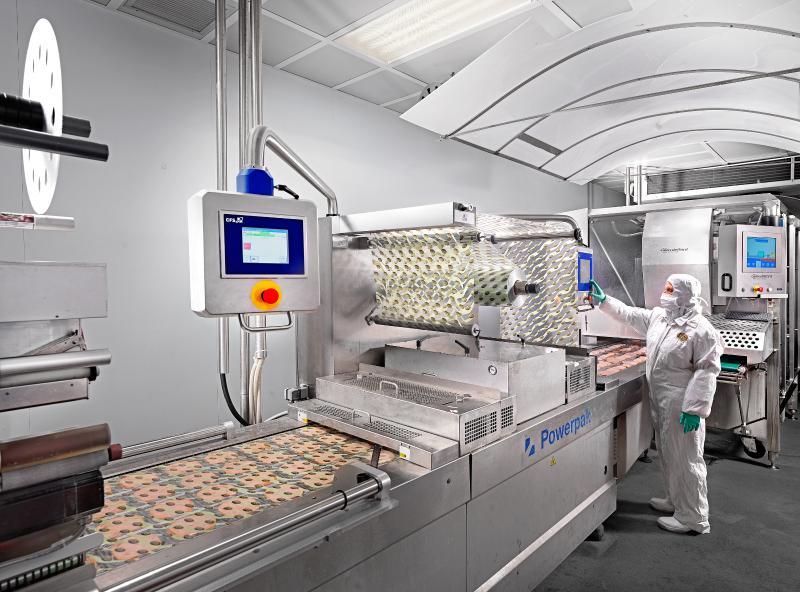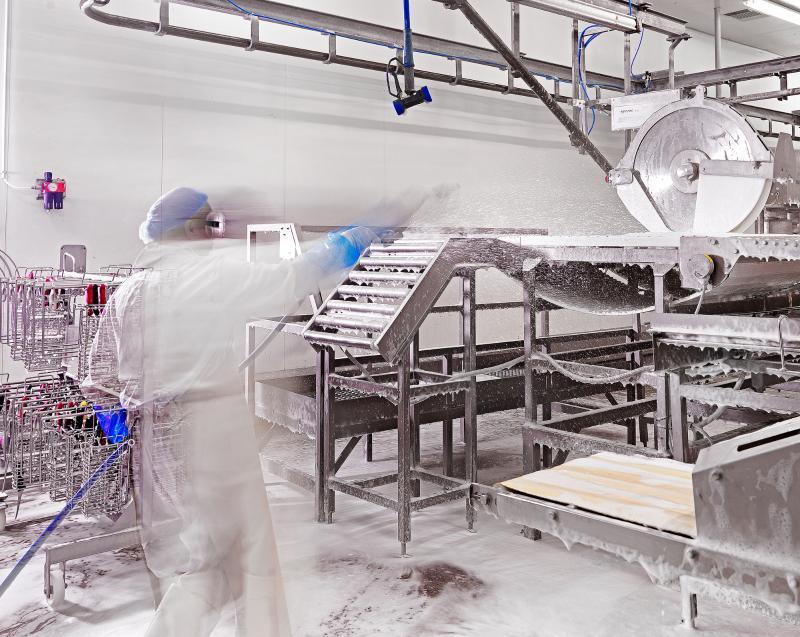Creta Farms injects olive oil into its meat and gets a cash injection from the Investment Plan for Europe
When you think of business innovation, you probably envision the fancy apps and gadgets of high-tech start-ups or drugs crafted by pharmaceutical companies. Important stuff. Sometimes even quite exciting.
Think of super-tasty sausages. Now that’s really exciting!
The biggest cold-cuts company in Greece, Creta Farms spends five times as much as its peers on innovative ways to produce healthier meats. Creta Farms’ inventiveness focuses on a complex, proprietary technology that allows the company to remove saturated animal fats from its meats and, instead, to inject extra virgin olive oil, which includes unsaturated fat. That makes the meats healthier because it lowers “bad” cholesterol, but it also keeps them tasty.
This “oliving” technology, as company officials call it, has made Creta Farms the biggest player in the Greek cold-cuts market, despite its products being priced at a premium. It has already made a successful entry into the Australian market and those of a few other countries besides. But the company wants to expand further into international markets and to introduce its oliving technology into the worldwide snack-food business.

EU backs innovative Mediterreanean diet technology
So Creta Farms secured the backing of the EU’s Investment Plan for Europe with the first major loan to a Greek company under the European Fund for Strategic Investments (EFSI).
The European Investment Bank, the EU bank, loaned EUR 15 million to Creta Farms in June. The loan is backed by EFSI’s EU budget guarantee and EIB resources, which aim to trigger EUR 315 billion of investment across Europe by 2018. It was needed because Greek banks are reluctant to lend in the wake of years of economic upheaval. The loan will help finance expensive advances in Creta Farms’ oliving technology, as well as its international expansion.

Healthy foundations for a diet and an economy
The Mediterranean diet, which includes vegetables, whole grains and fish, derives much of its tastiness from olive oil. Such a diet has been shown to cut “bad” cholesterol and reduce the risk of heart attack. Creta Farms believes that will help its move into the international snack market, which is much larger than the deli market. To make the most of that move, Creta Farms intends to develop ways of “oliving” pizza and cheese, to cut out the bad fats without losing tastiness. The EIB’s loan will accelerate Creta Farms international move and boost its R&D.

From pork farm to innovator
Creta Farms started in 1970 as a pork farm and meat-production facility founded by Stilianos Domazakis in Rethymno on the north coast of Crete. In the 1990s, Domazakis’ sons Emmanouil and Konstantinos—who still control 82% of the company’s shares—switched direction to research the production of low-fat cold-cuts. After six years of development, they patented a technology that reduces fat far below the 30% level of traditional deli meats. The company produces 30,000 tons of deli meat a year.
The emphasis on technology continued and the company has filed 20 patents in the last 15 years. It spent EUR 35 million on research, development and innovation in the last five years, which is 5% of turnover and five times more than most food companies. By contrast RDI expenditures at Greek companies average less than half the levels of Europe as a whole.
